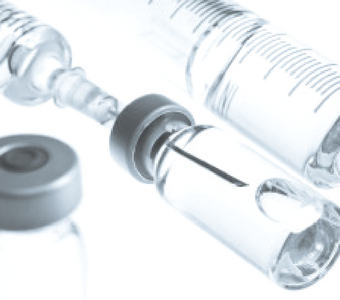Questcor Pharmaceuticals’ (QCOR) purchase of Synacthen on Tuesday, a synthetic melanocortin receptor agonist, from Novartis (NVS) is good news for the $2B drug developer, fortifying its position as the sole supplier of a key treatment for a number of inflammatory and autoimmune diseases. Since last year when the stock tanked on insurance reimbursement concerns, Questcor has time and time again shaken off the risks that bearish investors have so adamantly spotlighted, from payer resistance to competition for the company’s lead and only product H.P. Acthar Gel, and the stock has responded in kind. QCOR has been a high-conviction pick for PropThink (see prior coverage) since the sell-off in 2012. Buying the dip then had returned more than 80% before Tuesday’s news, and PropThink readers who have held on through the long-term volatility are now up more than 100%. The announcement Tuesday that Questcor had acquired Synacthen and Synacthen Depot for $60M up front and an additional $75M+ in milestone payments sent QCOR soaring almost 40% before the stock slowly declined through the rest of the day. But now that Questcor has nipped a potential competitor, we believe the stock should continue to climb towards the $50 level. The threat of a competitor in a space that Questcor dominates solely created an overhang on the stock, and was certainly part of the bear thesis — with that out of the way, Questcor’s price-to-earnings multiple should expand as risks continue to dissipate. As evidence of the dwindling negative outlook on QCOR, the stock’s short interest is at its lowest since last year when the stock imploded. The bottom line is that QCOR remains cheap, Acthar is a growing product, and the risks that once overhung the name have largely disappeared. We expect investors to keep buying the name, and analysts are one by one coming back as constructive.
We see four key reasons for continued appreciation from QCOR:
- Questcor remains cheap relative to growth. QCOR currently carries a Forward P/E of just 11.4x (2013 Consensus EPS estimate of $4.01 in 2013) and a PEG (P/E to Growth ratio) of a meager 0.57. Pharma growth stories typically carry PEG ratios upwards of 1.5+, thus Questcor remains inexpensive compared to its growth prospects. The risks that, until yesterday, still weighed on the stock appear to be abating.
- The long-term bear thesis and largest risk to Questcor was that insurance companies would continue to crack down on Acthar reimbursement. That has failed to materialize almost a year after Aetna limited Acthar’s coverage in September of 2012, and in fact, we’ve seen more payers supporting Acthar reimbursement. United Health (UNH) confirmed reimbursement for all Acthar indications just ten days ago on June 1, and the same is true for BlueCross BlueShield of Kansas.
- Questcor continues to grow Acthar sales with expansion into previously untapped indications. In February, we outlined how and why expansion was occurring, driven primarily by growth into rheumatology and nephrology. The company expanded its rheumatology and nephrology sales teams significantly early this year, noteworthy because both indications are particularly lucrative due to the necessity for more Acthar vials per treatment (details here). Questcor in fact quadrupled its rheumatology sales force from 12 to 58 reps, and the company had its best April ever in-part due to this expansion. In addition, the company has put more capital into R&D — Questcor doubled its R&D spend from 2011 to 2012 — for just that reason, expanding Acthar’s application even further.
- Finally, the acquisition of Synacthen was a key strategic and defensive move for Questcor, eliminating a potential competitor while increasing its own capacity for franchise growth. Potential generic or branded competition for Acthar was another key to the Questcor bear thesis, and as evidenced by QCOR’s reaction on Tuesday (the stock jumped 38% at the open), we suspect short-sellers scrambled to cover as one of the tenants to their position fell through.
$50 now represents a major target as investors get comfortable with Questcor’s growth, and we expect shares to continue to gravitate towards this psychological/historical resistance level. QCOR touched $57 in mid-2012, and given that Acthar revenues have grown significantly since then and its application continues to expand (plus a stock dividend and share repurchase program), revisiting those all-time highs is not out of the question before the year is out. PropThink had previously suggested that QCOR could move towards the high $30-$40 range, which was right on the mark ahead of this event. You can see all of PropThink’s prior coverage by clicking here.



